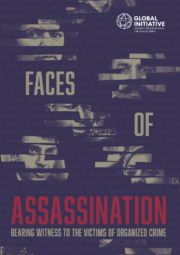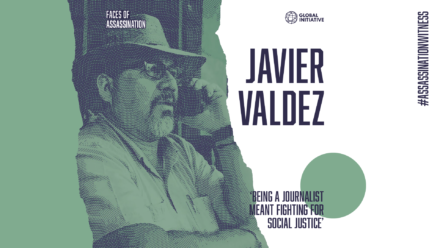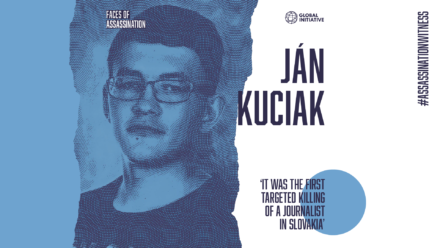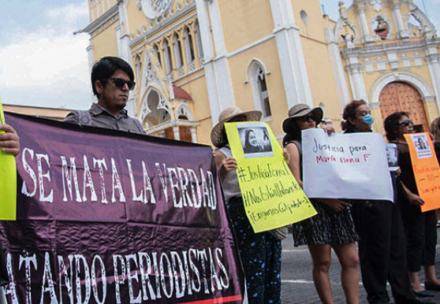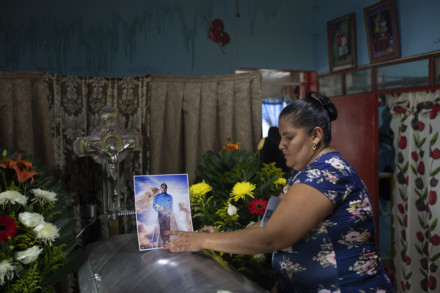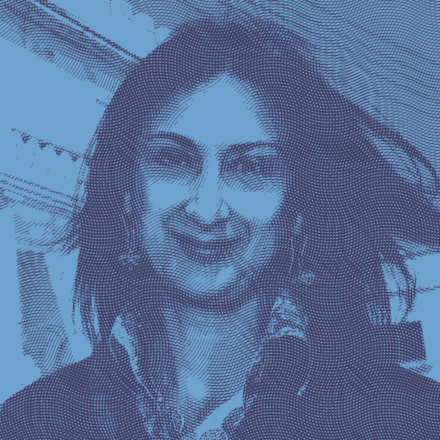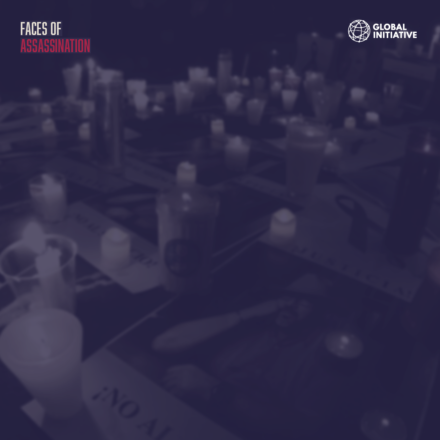Ján Kuciak: A nation waits for justice
Interview to Peter Bárdy
Posted on 02 Sep 2020
On 3 September, the Slovakian courts will decide the fate of Marian Kočner, a Slovak businessman who stands co-accused with two others of orchestrating the murder of investigative journalists Ján Kuciak and Martina Kušnírová in 2018. With emotions in the country running high, many hope the court’s decision will be just.
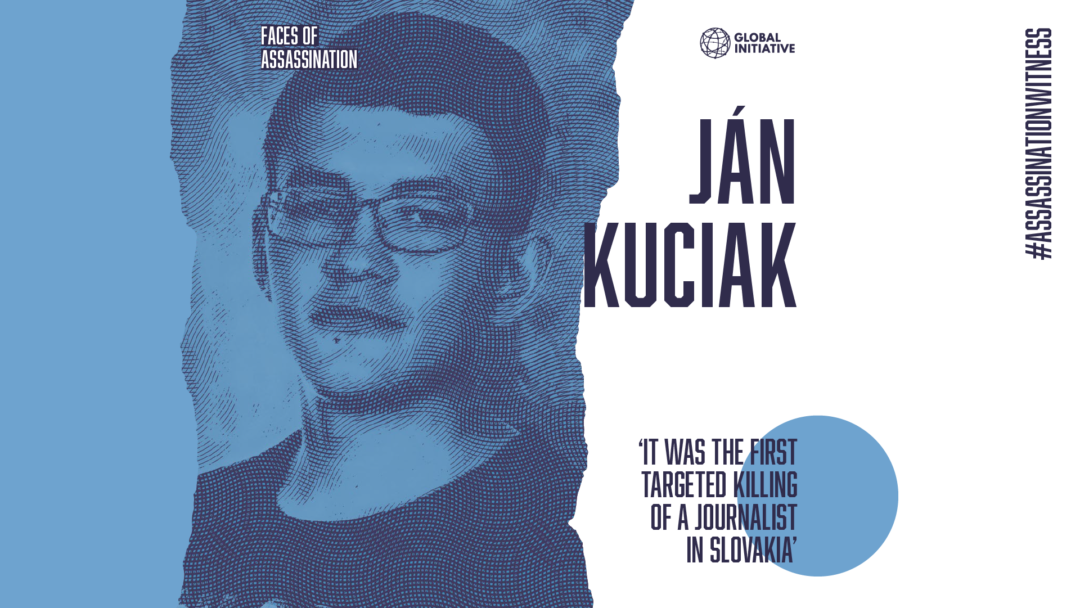
On 3 September, the Slovakian courts will decide the fate of Marian Kočner, a Slovak businessman who stands co-accused with two others of orchestrating the murder of investigative journalists Ján Kuciak and Martina Kušnírová in 2018. With emotions in the country running high, many hope the court’s decision will be just.
The double murder of investigative journalists Ján Kuciak and his fiancée Martina Kušnírová on 21 February 2018 shocked Slovakia. Thousands of people took to the streets in protest and Prime Minister Robert Fico resigned. At the time of his death, Kuciak was investigating the influence of the Italian mafia in Slovakia, and its connections to local businesses and elected officials.
Five people were accused of involvement in the murders. Two have already pleaded guilty and been sentenced, while a Slovakian court is now preparing to announce its verdict on the remaining three defendants. Foremost among the accused is Marian Kočner, an influential Slovak businessman with alleged ties to organized crime who has been charged with ordering Kuciak’s murder. The court was originally due to pass judgment on 5 August, but announced the day before that it was deferring its decision to 3 September, stating that it needed more time to consider its verdict.
The postponement raised anxieties around an already tense process. In the build-up to the September announcement, many are hoping that the court will finally deliver justice and help set new standards in corruption-fatigued Slovakia. Peter Bárdy, the editor-in-chief of Aktuality.sk and Kuciak’s former employer, says that he hopes the accused will be found guilty:
I expect justice. I would obviously like to see Kočner and all the people responsible for this murder till the end of their life in jail, but if they [the prosecutor] don’t have the evidence, we will have to accept court’s just decision … [but] our lawyers think that all of the accused will end up in prison.
The investigation into Kuciak’s death has revealed how well connected Kočner is to influential elements of Slovakian socjety. According to Bardy: ‘When we started working on Ján’s murder investigation, we received a lot of data from Kočner’s mobile phone. What we learned from it is that there are a lot of judges, prosecutors, policemen, rich businessmen who were very close to Kočner, and also who worked for him.’
But there have recently been signs of a more proactive approach to combating corruption in Slovakia’s legal system. On 11 March, Slovakian police detained 18 people accused of corruption and taking bribes, including Vladimír Sklenka, a judge from a regional court in Bratislava who was allegedly taking bribes from Kočner to make rulings in his favour.
However, regardless of the court’s decision on 3 September, Bárdy believes that Kuciak’s murder has already led to significant change in the country, namely through the resignation of Fico in 2018. According to Bárdy: ‘The situation [after the government change] is incomparable. Fico’s government prepared the environment for corruption – for people like Marian Kočner to thrive. The current government of Igor Matovič is something different.’
Matovič and his Ordinary People and Independent Personalities (OLANO) party are willing to enact change, according to Bárdy, but face difficulties in recruiting appropriately qualified personnel in a country of 5.5 million citizens: ‘They need new dozens of prosecutors, judges, a new general prosecutor, and I think it’s a challenge for the new government – they need to find people who can do it, want to do it and will do it … this is really not so easy.’ Bárdy also said that ‘this government is full of people who are hunting for easy money,’ citing those engaged in defrauding Slovakian public funds and abusing EU financial support mechanisms.
Bárdy himself was deeply shocked by Kuciak’s murder, but now feels that Slovakia is on a positive trajectory. ‘After Ján’s assassination I was sick and tired, frustrated,’ he says. ‘This was the moment when we understood we are not immortal, that there are people in our country who may order our assassination.’
Bárdy was worried that his team would collapse after the murder, but no one resigned. To Bárdy’s surprise, the Aktuality team was flooded with support from all over the world: he received thousands of emails of encouragement and CVs of people who wanted to work with the news outlet. Kuciak’s death has also politicized the ordinary people in Slovakia. ‘They are not silent and passive anymore,’ says Bárdy. ‘A lot of people found out that we cannot be silent if we want to change something. This is something that is new in my country.’ Bárdy also stressed that support from EU institutions such as Eurojust and Europol had been immense: ‘Slovakia was not prepared to do the investigation on its own.’
Kuciak’s family has asked him to continue the late journalist’s work, and Bárdy has pledged to do so.
‘We are at the beginning of the beginning,’ he says. ‘My team is not only my [Aktuality employees] … my team are all the people in this country who want to change it for the better.’ But how Slovakia’s transformation unfolds will be shaped by the events on 3 September. If justice is not seen to be served, then the legitimacy of the political and legal establishment may be undermined, with potentially significant consequences for the embattled country.
Listen to the Faces of Assassination podcast episode dedicated to journalists. In this episode, we talk to journalists and press freedom campaigners about how organized crime networks are a threat to journalism: ‘Doing journalism shouldn’t be a death sentence.’
On 3 September, the Slovakian courts will decide the fate of Marian Kočner, a Slovak businessman who stands co-accused with two others of orchestrating the murder of investigative journalists Ján Kuciak and Martina Kušnírová in 2018. With emotions in the country running high, many hope the court’s decision will be just.
The double murder of investigative journalists Ján Kuciak and his fiancée Martina Kušnírová on 21 February 2018 shocked Slovakia. Thousands of people took to the streets in protest and Prime Minister Robert Fico resigned. At the time of his death, Kuciak was investigating the influence of the Italian mafia in Slovakia, and its connections to local businesses and elected officials.
Five people were accused of involvement in the murders. Two have already pleaded guilty and been sentenced, while a Slovakian court is now preparing to announce its verdict on the remaining three defendants. Foremost among the accused is Marian Kočner, an influential Slovak businessman with alleged ties to organized crime who has been charged with ordering Kuciak’s murder. The court was originally due to pass judgment on 5 August, but announced the day before that it was deferring its decision to 3 September, stating that it needed more time to consider its verdict.
The postponement raised anxieties around an already tense process. In the build-up to the September announcement, many are hoping that the court will finally deliver justice and help set new standards in corruption-fatigued Slovakia. Peter Bárdy, the editor-in-chief of Aktuality.sk and Kuciak’s former employer, says that he hopes the accused will be found guilty:
I expect justice. I would obviously like to see Kočner and all the people responsible for this murder till the end of their life in jail, but if they [the prosecutor] don’t have the evidence, we will have to accept court’s just decision … [but] our lawyers think that all of the accused will end up in prison.
The investigation into Kuciak’s death has revealed how well connected Kočner is to influential elements of Slovakian socjety. According to Bardy: ‘When we started working on Ján’s murder investigation, we received a lot of data from Kočner’s mobile phone. What we learned from it is that there are a lot of judges, prosecutors, policemen, rich businessmen who were very close to Kočner, and also who worked for him.’
But there have recently been signs of a more proactive approach to combating corruption in Slovakia’s legal system. On 11 March, Slovakian police detained 18 people accused of corruption and taking bribes, including Vladimír Sklenka, a judge from a regional court in Bratislava who was allegedly taking bribes from Kočner to make rulings in his favour.
However, regardless of the court’s decision on 3 September, Bárdy believes that Kuciak’s murder has already led to significant change in the country, namely through the resignation of Fico in 2018. According to Bárdy: ‘The situation [after the government change] is incomparable. Fico’s government prepared the environment for corruption – for people like Marian Kočner to thrive. The current government of Igor Matovič is something different.’
Matovič and his Ordinary People and Independent Personalities (OLANO) party are willing to enact change, according to Bárdy, but face difficulties in recruiting appropriately qualified personnel in a country of 5.5 million citizens: ‘They need new dozens of prosecutors, judges, a new general prosecutor, and I think it’s a challenge for the new government – they need to find people who can do it, want to do it and will do it … this is really not so easy.’ Bárdy also said that ‘this government is full of people who are hunting for easy money,’ citing those engaged in defrauding Slovakian public funds and abusing EU financial support mechanisms.
Bárdy himself was deeply shocked by Kuciak’s murder, but now feels that Slovakia is on a positive trajectory. ‘After Ján’s assassination I was sick and tired, frustrated,’ he says. ‘This was the moment when we understood we are not immortal, that there are people in our country who may order our assassination.’
Bárdy was worried that his team would collapse after the murder, but no one resigned. To Bárdy’s surprise, the Aktuality team was flooded with support from all over the world: he received thousands of emails of encouragement and CVs of people who wanted to work with the news outlet. Kuciak’s death has also politicized the ordinary people in Slovakia. ‘They are not silent and passive anymore,’ says Bárdy. ‘A lot of people found out that we cannot be silent if we want to change something. This is something that is new in my country.’ Bárdy also stressed that support from EU institutions such as Eurojust and Europol had been immense: ‘Slovakia was not prepared to do the investigation on its own.’
Kuciak’s family has asked him to continue the late journalist’s work, and Bárdy has pledged to do so.
‘We are at the beginning of the beginning,’ he says. ‘My team is not only my [Aktuality employees] … my team are all the people in this country who want to change it for the better.’ But how Slovakia’s transformation unfolds will be shaped by the events on 3 September. If justice is not seen to be served, then the legitimacy of the political and legal establishment may be undermined, with potentially significant consequences for the embattled country.
Listen to the Faces of Assassination podcast episode dedicated to journalists. In this episode, we talk to journalists and press freedom campaigners about how organized crime networks are a threat to journalism: ‘Doing journalism shouldn’t be a death sentence.’





























































